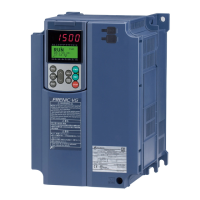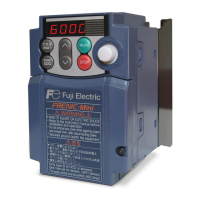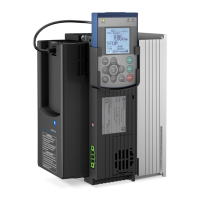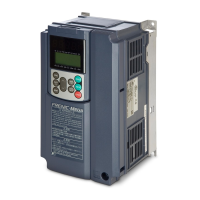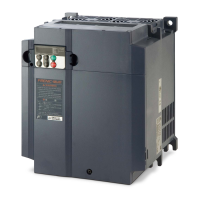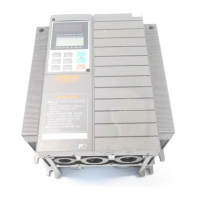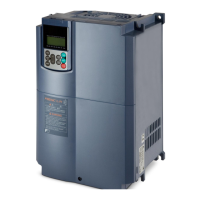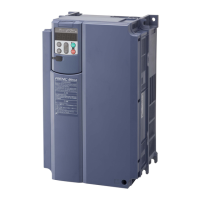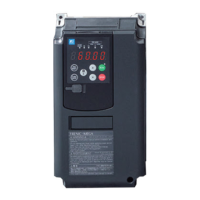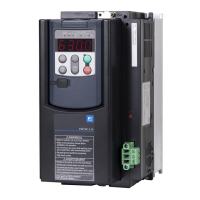FUNCTION CODES
Chap 5
d72
Master follower operation (APR gain)
d72 determines the response of the automatic position regulator (APR). (See Figure 5.3-25 and Figure 5.3-26)
If the APR output comes to be a single rotation of the encoder shaft per second when the phase angle error
(position deviation) between the master and follower PGs becomes equal to a single rotation of the encoder shaft,
that gain is assumed to be 1.0.
Setting a too large value to the gain data easily causes hunting, and setting a too small value results in a large
steady-state deviation.
Adjust the gain, referring to Figure 5.3-27 as a guide. If the d72 setting is adjusted, it is recommended to adjust
also the d02 setting as shown in Figure 5.3-27.
Figure 5.3-27 d72 Setting Guide
d73
Master follower operation (APR positive output limiter)
d74
Master follower operation (APR negative output limiter)
These function codes specify the limits of APR output relative to the master motor speed. (See Figure 5.3-25 and
Figure 5.3-26)
Specification of “999” disables the limiter.
Figure 5.3-28 Operation of APR output limiter
d75
Master follower operation (Z phase alignment gain)
If the APR output reaches the maximum frequency when the phase angle error between the master and follower
PGs (position deviation) becomes 10% of the pulse rate at the maximum frequency, that gain is assumed to be 1.0.
Usually, it is not necessary to change the factory default. If the reduction ratio is small and the encoder pulse count
is low, it is necessary to decrease the Z phase alignment gain relative to the factory default.
d76
Master follower operation (Offset angle between master and follower)
In follow-up mode during acceleration, the follower inverter delays starting to synchronize the Z phase with that of
the master motor by the offset angle specified by this function code.
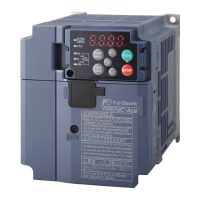
